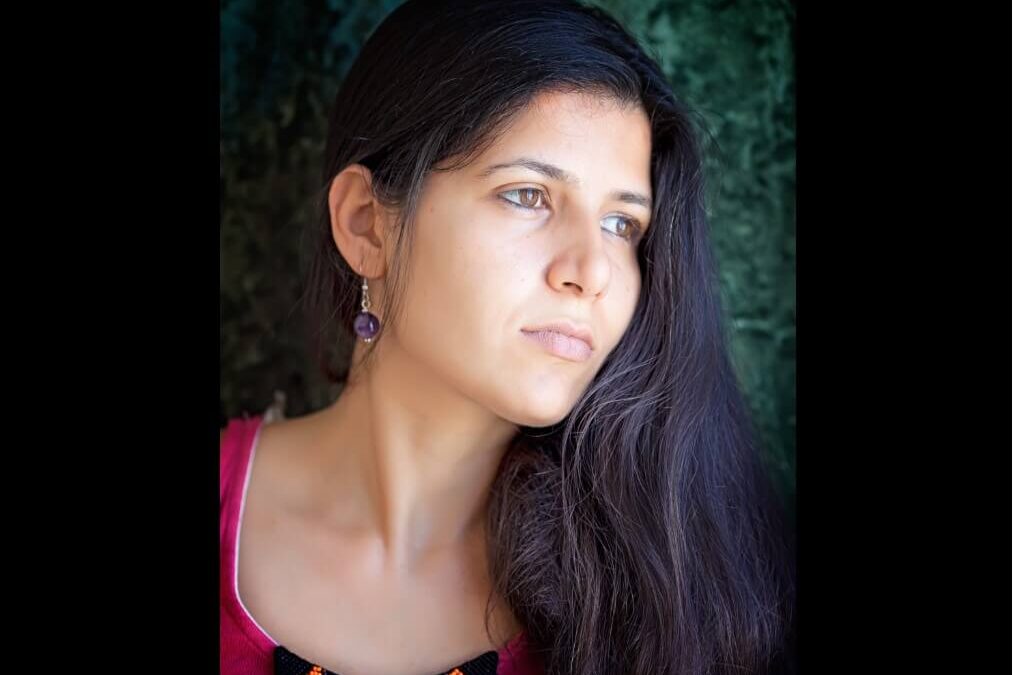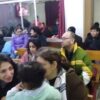Image above: For security reasons, a model image of a Middle Eastern woman (haykirdi/istockphoto.com) is shown instead of a picture of Leylah, whose name has also been changed.
Leylah Akrawi, 26, is a married mother of four children, born and raised in Western Iraq. When the Islamic State invaded Iraq, her children were all between two and seven years old. When the fighters crossed the border from Syria into Iraq and began to occupy areas in the arid plains of West Iraq, it wasn't long before they raided the village where Leylah lived with her family.
"Repent (...) or we will take the women and children"
After hearing all the stories of the massacres in the other villages taken by the Islamic State, the villagers left everything behind and rushed to leave the area, but they were pursued by the militias: "They were mostly dressed in black and caught up with us quickly. We don't belong to Sunni Islam, which these men profess, so they threatened us: 'Convert to true Islam or we will kill all the men and take the women and children'. Faced with this danger, with no way to escape, we surrendered to the warriors and were taken to a small town they had taken earlier. Here my heart was broken for the first time when they divided us into men, women and children and our family was torn apart and we were locked up."
"At first we were lucky. Our children were too young to be trained by the terrorists. They trained very young children they had captured from the surrounding villages and taught them extremist Islamic Sharia law, but even worse, they also trained them to use weapons and fight! Then they took us to Syria and our situation became worse than you can imagine."
Because she was young and good-looking, Leylah was selected and taken to the house of one of the fighters in the town in southern Syria to which they had been taken. By this time, she had already lost contact with her husband.
"I cried, I screamed, I was desperate! When they made me the 'wife' of one of these warriors, they took my children away from me to sell them to families who had no children of their own." Leylah
"I cried, I screamed, I was desperate! When they made me the 'wife' of one of these warriors, they took my children away from me to sell them to families who had no children of their own. I was screaming and shouting so much that one warrior turned around and hit me. I was completely helpless and unable to protect my children. Only my youngest stayed with me".
In the months that followed, Leylah endured a terrible and traumatizing time with numerous incidents of gender-based violence and physical and mental abuse, where she was sold to different men. Food and water were a rarity and hunger was always present. Her trauma was further compounded by the fact that she experienced two methods of killing that the Islamic State unfortunately often uses: a man was beheaded in front of her, and later she was forced to watch a group of men being pushed off a roof. The Islamic State used these kinds of public intimidation tactics to keep the rest of the captives at bay.
Leylah was finally able to escape
Eventually, she was sold to a new fighter back in Iraq. Fighting broke out near where they lived and in the ensuing chaos, she managed to escape and subsequently cross the frontline into non-IS territory. She was transferred to various refugee camps and ended up in the Dohuk region of northern Iraq. Here she was examined by a doctor who quickly realized that Leylah had gone through the most terrible things and reported it to the regional Ministry of Health.
Leylah gets help to process her trauma
They subsequently put her in touch with the Christian trauma treatment center in Dohuk, which Danish European Mission donors have supported. Leylah's memories cannot be erased and her loss cannot be replaced, but at the center, the women will eventually have a safe place where professional staff can accompany them on their journey back to something resembling a normal life.
Image: The women deal with their trauma by drawing and expressing themselves creatively.
Little by little, women like Leylah begin to open up and express their trauma. They have the opportunity to talk to trained counselors who help them open up and talk about the abuse they have suffered. This allows victims to break out of the apathy they often end up in.
In addition, the local Christians organize workshops where the girls can do crafts and creative work such as embroidery and crochet, and they learn to knit and apply makeup. They can also learn to paint and make jewelry. Working with your hands serves two purposes. Firstly, it can create an informal and relaxed environment where the girls can enjoy themselves and talk about big and small things. This in itself leads them out of apathy and is healing. And secondly, expressing yourself through creative work can help you process emotions that may be difficult to put into words.
May these women, with God's help, find healing, new hope and light again through the therapy and guidance they receive here. Together with the local Christians in Dohuk, Northern Iraq, we can pray for these women.






